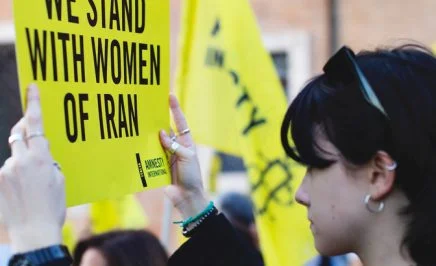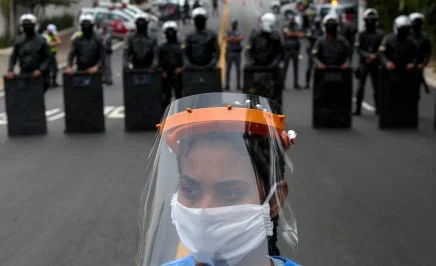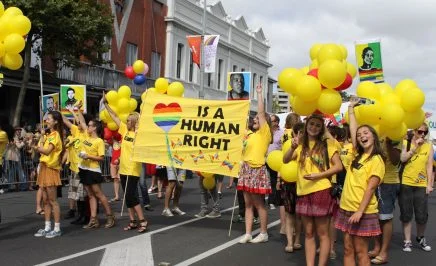The Amnesty International Report 2022/23 documents the human rights situation in 156 countries and calls for action. It demonstrates what steps governments and others can take to meet these challenges and improve people’s lives across the world.
In the world
The themes that emerged most strongly from Amnesty International’s research on 156 countries in 2022 and are deeply interconnected. We saw new or renewed conflicts break out and prolonged ones persist.
The right to protest
- The year 2022 was marked by heavy-handed repression of the freedoms of expression, association and peaceful assembly. Those defending human rights and exercising their right to protest often bore the brunt of such repression.
- In Ukraine, crackdowns on the freedoms of expression and association were associated with armed conflict. In Afghanistan and Myanmar, crackdowns followed armed takeovers of government.
Gender-based violence and sexual and reproductive rights
- Gender-based violence against women, girls and LGBTI people remained a global issue and, despite some action to improve legislative protections, there were some notable setbacks in 2022.
- In the USA, several states passed laws to ban or curtail access to abortion, which ignited threats to reproductive rights around the world. In Afghanistan, the Taliban forbade women and girls from travelling without a male chaperone, banned them from public parks and prohibited them from tertiary education or from working for NGOs.
Economic and social rights
- Although many countries began to emerge from the shadow of Covid-19, others continued to face its effects. Economic crises associated with the impact of the pandemic led to rocketing price rises for fuel and increased pressure on health and other social services.
In Australia
The right to protest
- New South Wales, Tasmania and Victoria adopted new laws restricting the right to peaceful protest. In August 2022, police in New South Wales arrested 34 peaceful protesters and a legal observer at a demonstration in Sydney against government inaction on climate change.
Indigenous rights
- First Nations people remained overrepresented in the prison population, despite targets to reduce the number of incarceration.
- 21 Aboriginal and Torres Strait Islander people died in custody in 2022.
- In September 2022, the UN Human Rights Committee found that Australia’s failure to adequately protect Indigenous Torres Strait Islanders against impacts from climate change violated their human rights.
- In September 2022, the government proposed to establish the Aboriginal and Torres Strait Islander Voice, a body to make representations directly to government on issues affecting First Nations peoples.
Children’s rights
- Australia continued to detain children as young as 10. First Nations children, who represented 6% of the population aged 10 to 17, constituted 50% of those in youth detention.
- The rights of child detainees, and during transfer, were violated with increased rates of self-harm among children.
- In August 2022, allegations of sexual and physical abuse against children held at Ashley Youth Detention Centre in Tasmania emerged during an official investigation, prompting calls for the immediate closure of the facility.
Refugee rights
- In March 2022, Australia accepted an offer by New Zealand to resettle refugees, but indefinite detention of asylum seekers offshore, and in Australia, continued.
- In July 2022, an Iranian-Kurdish refugee, Mostafa “Moz” Azimitabar, challenged the legality of his 15-month-long detention in hotels, dubbed by the government as “alternative places of detention”.
Climate justice
- In September 2022, the Climate Change Act was adopted and new carbon reduction targets were enshrined in legislation, but fell short of required average global levels.
Human Rights Act
- In March 2023, a parliamentary inquiry was launched to investigate updating the Federal Human Rights framework with a focus on implementing a Human Right Act. This would ensure everyone in Australia has the same fundamental human rights in law, and provide an accountability framework for all Australians to be able to protect and defend their rights.
On a domestic level, Amnesty International Australia’s 2025 Vision looks ahead with a clear vision of how we will continue to challenge injustice and create real, lasting change on key issues: Indigenous justice, refugee rights, LGBTQIA+ rights, women’s rights, climate justice and anti-racism.
On a global level, the latest Amnesty International Annual Report 2022/23 details the concerns and calls for actions to governments and others. This report makes essential reading for government leaders, policy makers, advocates, activists and anyone with interested in human rights.





